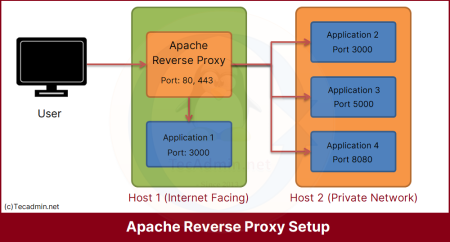Apache is a popular open-source HTTP server that is widely used to host websites and applications on the Internet. The Apache HTTP server is highly customizable and configurable, and one of the key areas where administrators can make changes is with the Apache Multi-Processing Modules (MPMs). MPMs are the modules that control how Apache handles multiple requests, and they play a crucial role in determining the performance, scalability, and stability of an Apache server.
In this article, we will provide a comprehensive introduction to Apache MPMs, including what they are, how they work, and the different types of MPMs available.
What are Apache MPMs?
Apache MPMs are modules that control the process management of the Apache HTTP server. The Apache server is designed to handle multiple requests concurrently, and MPMs determine how these requests are processed. Different MPMs use different strategies to handle multiple requests, and each has its own advantages and disadvantages.
How do Apache MPMs work?
Apache MPMs control the process management of the Apache HTTP server by determining how the server handles multiple requests. The Apache server can run in one of several different modes, each controlled by a different MPM. These modes determine how the server forks child processes, allocates resources, and communicates with the client.
Types of Apache MPMs
There are several different types of Apache MPMs available, each with its own unique features and strengths. Some of the most popular MPMs include:
- Prefork: The Prefork MPM is the simplest and most widely used Apache MPM. It creates multiple child processes, each of which handles a single request at a time. This MPM is easy to understand and configure, and is a good choice for simple websites with low traffic.
- Worker: The Worker MPM is similar to the Prefork MPM, but it uses multiple worker threads instead of separate processes. This MPM is more efficient than the Prefork MPM, as it can handle multiple requests with a single process.
- Event: The Event MPM is a more advanced Apache MPM that uses a single process with multiple worker threads. This MPM is designed to handle high traffic websites, and it uses an event-driven approach to handle multiple requests.
- ITK: The ITK MPM (Independent Ticket Key) is a specialized MPM that is used to isolate PHP processes. This MPM is designed to improve security by ensuring that each PHP process runs under a unique user account.
Choosing the Right Apache MPM
Choosing the right Apache MPM is crucial to the performance, scalability, and stability of an Apache server. Administrators should consider several factors when choosing an MPM, including the type of website or application being hosted, the amount of traffic the site receives, and the desired level of security and performance.
In conclusion, Apache MPMs are an essential component of the Apache HTTP server, and they play a critical role in determining how the server handles multiple requests. Understanding the different types of MPMs available, and how they work, is essential for administrators who want to optimize the performance and stability of their Apache servers.

